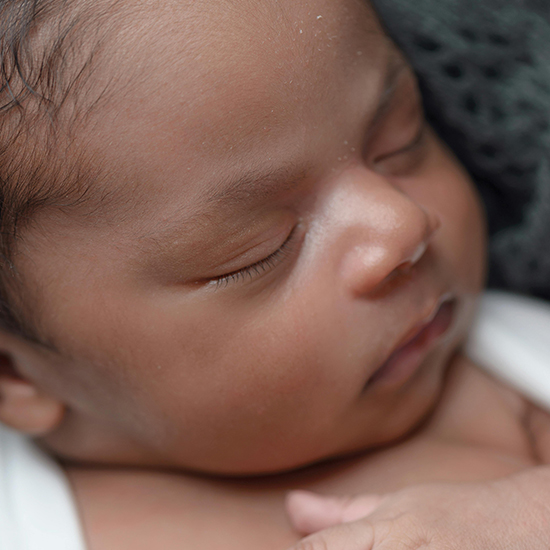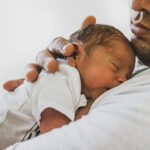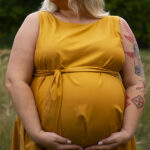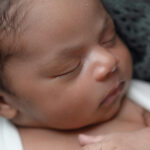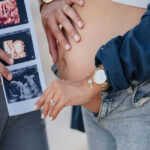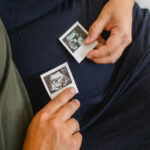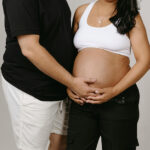Recurrent Implantation Failure within 20 treatment cycles
Ms R, a 38-year-old woman, and her husband, Mr S, 41yo , first presented to my clinic with primary infertility for 11 years and a long-standing battle with severe endometriosis. This case would become one of the most complex and challenging cases I have managed over my 19 years as a fertility specialist. What follows is a narrative history of Ms R extraordinary journey—a story of resilience, repeated setbacks, and ultimately, hope.
The Beginning: Severe Endometriosis and Multiple Surgeries
Ms R ‘s medical history began with two significant laparoscopies aimed at treating her severe endometriosis. The first, in December 2012, involved the excision of a 4 cm right ovarian endometrioma and a disc excision of a rectal nodule embedded in the anterior rectal wall. Despite these interventions, her battle with endometriosis was far from over.
By May 2017, her condition had progressed. A second laparoscopy revealed persistent severe endometriosis, including a left-sided endometrioma and an ovary adhered to the uterosacral ligament. Ms R also had another 3 surgeries in 2019, 2021 and 2023. Despite these extensive surgeries, Ms R’s desire for motherhood remained unfulfilled, pushing her to pursue fertility treatments.
IVF Begins: Hope and Disappointment
Ms R’s first in vitro fertilization (IVF) cycle began:
- in January 2018. After undergoing GnRH agonist therapy for three months, her stimulation cycle was cancelled due to an over-response.
Undeterred, she tried again 2) in June 2018 with an antagonist protocol. This time, 15 eggs were collected, 8 of which fertilized, resulting in 4 blastocysts. Two were frozen on Day 5 and the remaining two on Day 6. Hopes were high.
3) 02/07/2018 Ms R had Natural cycle embryo transfer resulted in negative pregnancy test.
4) 31/07/2018 another Natural single embryo transfer resulted in negative pregnancy test.
5) 28/08/2018 cancelled natural thaw cycle for premature ovulation.
6) 20/10/2018 Artificial single embryo transfer resulted in negative pregnancy test.
7) 20/01/2019 another artificial embryo transfer resulted in negative pregnancy test.
Yet, despite undergoing adjuvant therapies like endometrial scratching and Zoladex before her final frozen embryo transfer (FET) in January 2019, all attempts to achieve a pregnancy failed. The emotional toll of these repeated disappointments was mounting.
Persistent Struggles: Hydrosalpinx and Recurrent Negative Outcomes
Ms R underwent another fresh IVF cycle 8) in May 2019, yielding 7 eggs, 4 of which fertilized, and all 4 embryos were frozen due to a suspected hydrosalpinx. An ultrasound scan confirmed the need for further surgery, and She had her surgery in August 2019 that revealed 3cm Rt. endometrioma resected, myomatous uterus 4cm sub-serosal anterior, 2 cm sub-serosal, posterior wall in the POD,2 cm sub-serosal fibroid in the left cornu. These fibroids did not distort the uterine cavity, both ovaries were not mobile and adherent to pelvic side walls , patent fallopian tubes, Saline hysteroscopy , Normal cavity.
Following surgery, further attempts at embryo transfers continued to result in frustration:
- 9) January 2020: A frozen embryo transfer was negative.
- 10) February 2020: A transfer was cancelled due to fluid in the uterine cavity.
- 11) May 2020: Another frozen embryo transfer negative result.
- 12) July 2020: Ms R requested double embryo transfer, the result was again negative.
A New Chapter: Seeking My Help
It was at this juncture that Ms R came to my clinic in August 2020. A thorough evaluation of her case was necessary to reassess her condition and treatment plan. Her Karyotype was normal, Total Antral Follicle count was 13 beside 2 small endometriomas on the left Ovary, Multiple fibroid uterus but no distortion to the uterine cavity. Given her history, we opted for pre-implantation genetic testing for aneuploidy (PGT-A) during her next IVF cycle.
13) In 31/08/2020, She attempted a fresh IVF cycle, 14 eggs were collected, 10 fertilized, and 9 blastocysts were created, 6 of which were chromosomally normal. Two were mosaics and one embryo did not have result. This raised our hopes considerably.
Then in September 2020 she had a laparoscopy and hysteroscopy followed by GnRH-A for 3 months
14) In January 2021, after prepping with GnRH-A, with Ms R requested having double embryo transfer and adding Prolutex for luteal phase support, Ms R achieved a biochemical pregnancy—our first glimmer of hope.
15) In July 2021, another double frozen embryo transfer cycle, using the Colorado protocol resulted in another biochemical pregnancy.
However, 16) in September 2021, Ms R had double embryo transfer of two chromosomally normal embryos and an unfortunate turn occurred. She experienced a blighted ovum (empty gestational sac) necessitating a curette in November 2021.
17) In February 2022,Ms R had her last two mosaic embryos transferred after genetic counselling but unfortunately resulted in no pregnancy.
Final Push: Surgical Interventions and Success
In August 2023, Ms R underwent an abdominal myomectomy, during which 4 fibroids and an adenomyoma were removed. This surgery aimed to optimize her uterine environment for future transfers.
The plan for subsequent IVF cycle is not to do PGT-A testing for embryos as previous cycle showed that she can produce good percentage of chromosomally normal embryos.
18) in October 2023 the fresh IVF cycle yielded 11 eggs, with 3 blastocysts cryopreserved.
19) In 11/03/ 2024 ,Frozen embryo transfer attempted using down regulated artificial thaw cycle. Surprisingly on 19/03/2024 she had High Progesterone level of 60 nmol/L at the beginning of her follicular phase and the cycle was cancelled.
20) Then on 26/03/2024 ,Another down regulated cycle with Zoladex in addition to Letrozole ,LDA, Clexane and Prednisolone, Ms R had single embryo transfer graded as 4AA on 16/04/2024.
Finally Ms R had positive BHCG , despite spotting and low progesterone, adjustments to her medication regimen, including Gestone, sustained the pregnancy. Remarkably, on October 20, 2024, at 29 weeks and 4 days, Ms R’s pregnancy is ongoing, with an expected due date of January 2, 2025.
A Journey of Hope and Resilience
Ms R’s fertility journey, spanning eleven years, highlights the complexity of managing conditions like severe endometriosis, adenomyosis, uterine fibroids, and recurrent implantation failure. Across 20 treatment cycles, 47 eggs collected, and 12 embryo transfer cycles with a total of 17 embryos transferred, Ms R’s resilience and determination have been nothing short of remarkable.
Her case stands as a testament to the advances in reproductive medicine, where persistence and cutting-edge techniques can eventually lead to success. Today, Ms R has welcomed her long-awaited child, a beacon of hope for others navigating similar paths.

